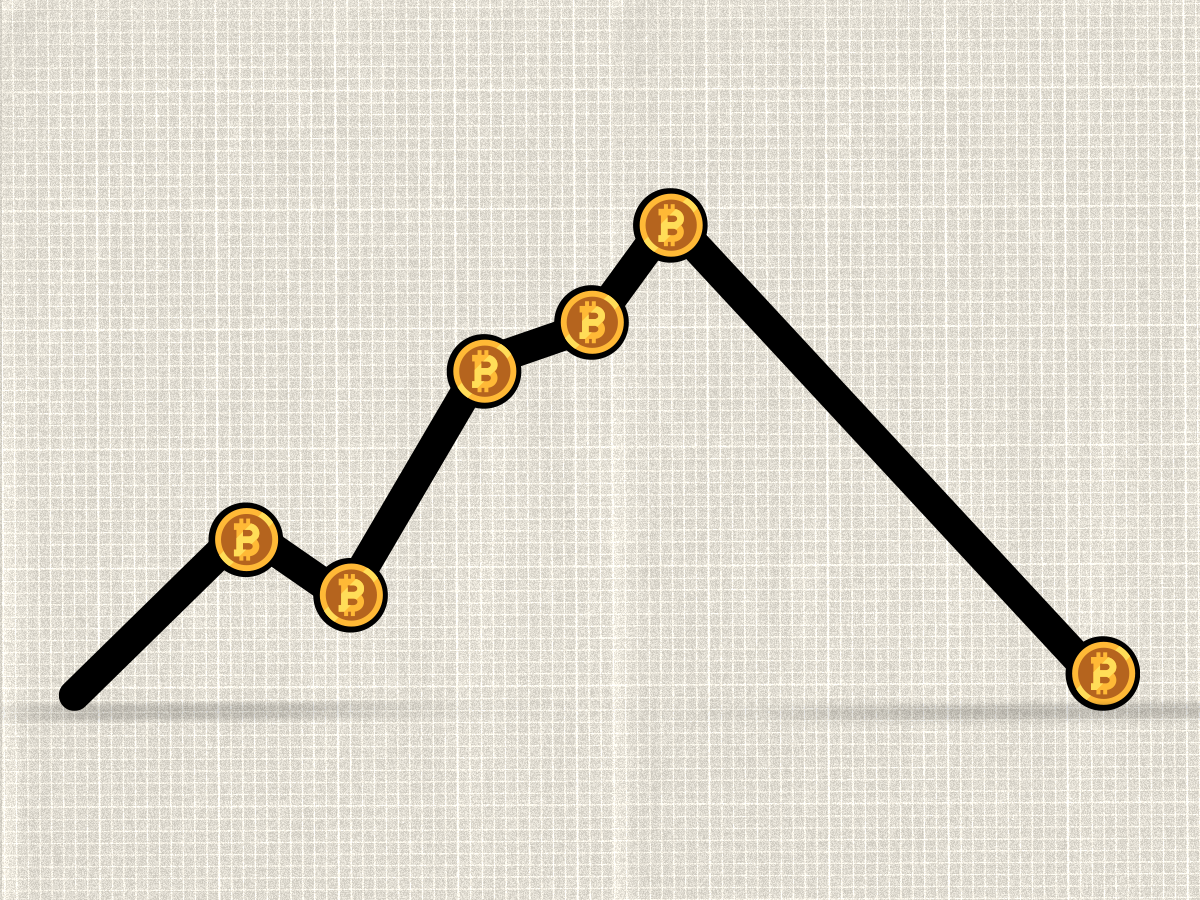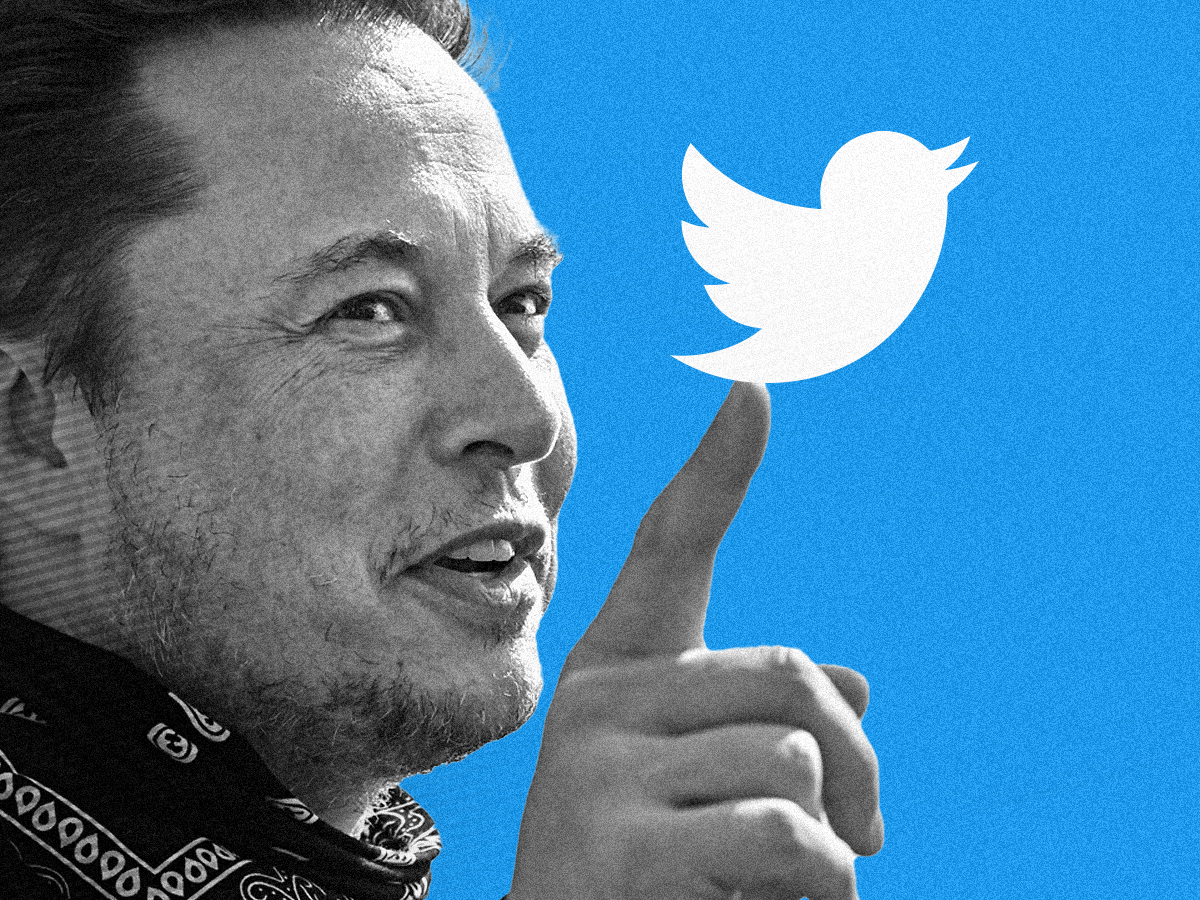Are we headed for dotcom bust 2.0?
Those who do study history are doomed to stand by helplessly while everyone else repeats it.”
These words – from an editorial cartoon by Tom Toro of the New Yorker – aptly describe the state of the tech world over the past few years, especially the past three.

To people of a certain age, the bewildering, vertigo-inducing bull run in internet stocks during 2020 and 2021, and their subsequent collapse in 2022, bring back unsettling memories of the OG – the 2000 dotcom bust.
In the five years to March 2000 the Nasdaq rose 489% before crashing 75% over the next 18 months.
In the five years to November 2021 the same index rose by 205% before falling as much as 38% over the next 12 months.
Growing pains
Both periods saw Wall Street in thrall to companies that put growth over profits, questionable business models, and a spike in retail investing.
Growth was easy in 1999 when investors, believing the internet would fundamentally change the nature of business, dumped their money into any startup with a .com at the end of its name. Their thesis, as we now know, was correct. But the timing was way, way off.
In February 2000, pet food delivery company Pets.com raised $82.5 million in its IPO and its shares debuted at $11.30. By November, the company, having endured nine straight months of losses, declared bankruptcy and shut down with its shares at $0.22.
In retrospect, the idea of investing in such a business seems more comical than its canine emissary. Pets.com was one of five online pet stores that popped up during the dotcom bubble. Its main differentiators? A sock-puppet mascot and a catchy slogan.

Credit: YouTube
Yet two decades later, around the start of the pandemic, investors flush with stimulus cash began to hurl huge wads of cash in the general direction of exercise-at-home company Peloton, causing its shares to jump 760% between mid-March 2020 and mid-January 2021. The company’s stock hit an all-time high of 167.42 on January 13 that year.
By October 2022, it crashed 96% to $6.66.
Peloton, which was founded in 2012 and went public in 2019, hasn’t made an annual profit since at least 2017. It last had a profitable quarter at the peak of lockdowns in mid-2020, when it reported a net income of $89.1 million with a margin of 14.7%.
A little over two years after that, in August 2022, Peloton reported a $1.2 billion quarterly loss – a hefty sum for any company but especially one with a market cap of around $3.3 billion.
We’re now rediscovering, in late 2022, that growth is easy, profits are hard, and stonks aren’t quite the same as stocks.

Credit: Giphy
Same-same but different
While there’s little doubt the tech world has been in a pandemic-induced, stimulus-funded, number-go-up utopia for the best part of three years, there’s a significant difference between the dotcom bubble and this one.
Tech investors in 2000 correctly predicted that the internet would change the world one day – they just couldn’t predict how long it would take or foresee the pitfalls along the way. It was all brand new, after all.
This led to an unbelievable amount of hype, which encouraged hordes of people to quit their jobs, declare themselves founders, and start companies with daring, dubious and downright dumb business models.
Fast-forward 20 years and while we see a lot of this happening all over again, the tech world of 2022 – unlike that of 2000 – isn’t entirely built on sand.
Big-Tech buffer
Amazon and Alphabet – two important survivors of the 2000 crash – were both hugely unprofitable in 1999. Last year, they brought in a combined $93 billion in profits.
While these two behemoths and their Big Tech cohorts haven’t been immune to the drawdown this year, they could – by virtue of their massive scale and profits – prevent a complete meltdown on the scale of the dotcom bust, when no-one had any idea which of the brand-new companies would be still be around in 10 years.
The operative word here, of course, is “could” – no one knows or can know exactly how this will play out.
And Big Tech hasn’t been immune to the ongoing chaos – far from it.
This week, Meta said it will fire 13% of its workforce – more than 11,000 employees – in one of the biggest tech layoffs of this or any year.
Microsoft, too, has sacked thousands of workers across two rounds of layoffs.
While Apple, Amazon and Alphabet haven’t announced any mass layoffs yet, all three have tightened their purse strings, pausing hiring and cutting costs in other ways.
So while there’s a Peloton for every Pets.com, the giant tech firms of today are on the whole much more likely to offer real products and services that provide tangible value than the dotcom startups of the late 1990s. As for the extent of the drawdown, that’s anybody’s guess.
One thing we know for sure is the startups of today that don’t provide real value to customers are unlikely to be around in 20 years, when the next generation of investors will inevitably YOLO all of their savings into the Next Big Thing.
That’s just how the cookie crumbles.
Written by Zaheer Merchant in Mumbai
Top stories by our reporters
Elon Musk’s Twitter takeover

Elon Musk’s chaotic reign at Twitter continued this week with a number of users of the platform creating fake verified accounts. Yes, that’s a thing now.
With the refreshed Twitter Blue subscription live, users were able to secure a ‘verified’ badge by paying $8. Parody accounts were created for companies such as Nintendo, Lockheed Martin, Eli Lilly and Twitter itself, in addition to political leaders like former US President George W Bush and former British Prime Minister Tony Blair.
While the accounts were suspended soon after the tweets came to light, companies still had to issue clarifications.
Back home, some of India’s biggest brands, including Mondelez India, have also paused advertising on Twitter.
The developments come amid mass layoffs, including in India, as the platform moves to downsize its global workforce, leaving employees shocked. Twitter fired nearly 180 of its 230-odd employees in India.
Another crypto meltdown

It’s been a difficult week for cryptocurrency enthusiasts as FTX – one of the world’s largest crypto exchanges – went bankrupt due to liquidity crunch and allegations of funds diversion of customers. FTX said it was commencing bankruptcy proceedings in the United States.
Earlier this week, on Tuesday, the world’s biggest exchange, Binance Holdings Ltd, announced that it would acquire rival FTX after conducting due diligence. A day later, it walked away from the deal citing problems with FTX’s finances as well as potential regulatory investigations.
The news aggravated the ongoing crypto rout, with bitcoin tumbling to its lowest level in two years and other currencies also taking a beating
Read our explainer on the Binance-FTX saga here.
FTX CEO Sam Bankman-Fried, who resigned on Friday, had apologised for FTX’s collapse and said he was “exploring all options for his firm”.
Meanwhile, Indian crypto investors are on the edge as digital assets crashed again.
Also Read | Local cryptocurrency traders brace for FTX deal impact
Tech earnings this week

Zomato: The food delivery platform reported its Q2 (July-September) earnings on Thursday evening. Its consolidated net loss narrowed more than 42% to Rs 250.8 crore, from Rs 434.9 crore in the same quarter of FY22, while revenue surged 62% to Rs 1,661 crore.
Paytm: The digital payments firm reported a 76% jump in second-quarter revenue, driven by a surge in loan growth. Paytm’s parent One 97 Communications said revenue rose to Rs 1,914 crore ($233.81 million) in the July-September quarter, from Rs 1,086 crore a year earlier.
PB Fintech: The parent entity of insurance platform Policybazaar and credit marketplace Paisabazaar reported consolidated losses of Rs 186.6 crore in the July-September quarter, narrowing from a loss of Rs 204.3 crore in the previous quarter.
Also read | Lenskart FY22 revenue jumps 66% to Rs 1,502 crore, but slips into losses
Tech policy update

Antitrust regulators in Australia and Germany are among those following recent action by the Competition Commission of India against Google, signalling increased global attention on policy rulings in India – the world’s largest data market – that challenge the dominance of large technology corporations.
On October 20, CCI fined Google over Rs 1,300 crore for abusing its dominant position in mobile operating systems. A few days later, the CCI fined the tech giant another Rs 936.44 crore for making its in-house billing system mandatory on the Play Store.
Google may even receive a third blow from the competition regulator, for alleged abuse of market dominance in the smart TV market, sources told us. The regulator’s investigative arm has concluded its probe into the matter and submitted its report.
Hiring and layoffs

IT firms seek background verification to nab moonlighters: Background verification firms have reported a spike in requests from IT companies for additional checks on employees as managers step up their efforts to stop workers from pursuing a second job.
Startups find it difficult to recruit senior talent: Startups are finding it increasingly challenging to recruit senior-level talent, particularly from non-internet sectors, amid a funding crunch, cost-cutting and layoffs across the sector.
Sacked Twitter, Meta staff are a talent pool for US IT firms: IT services and staffing firms in the United States could find a ready reserve of potential employees following mass layoffs by technology companies such as Twitter and Meta. Staffing firm Quess Corp, which recently started its professional staffing business in the US, said this was a good opportunity for companies to hire people who had been fired.
In other news

Oyo’s Ritesh Agarwal gets easier terms for 2019 share buyback: A Mizuho-Nomura-led consortium has restructured the terms of the financing arrangement worth about $2.2 billion through which Oyo founder Ritesh Agarwal bought back a 23% stake in his company in 2019, sources told us.
Reliance, HCL may join semiconductor race: Reliance Industries and software major HCL are independently evaluating deals to purchase a 30% equity stake each in the semiconductor wafer fab applicant ISMC Analog, sources told us.
Also read:
BSNL deal will propel TCS’ global telecom offerings: TCS COO
Amazon India set to deliver third-party ecommerce orders
For all the latest Technology News Click Here
For the latest news and updates, follow us on Google News.

